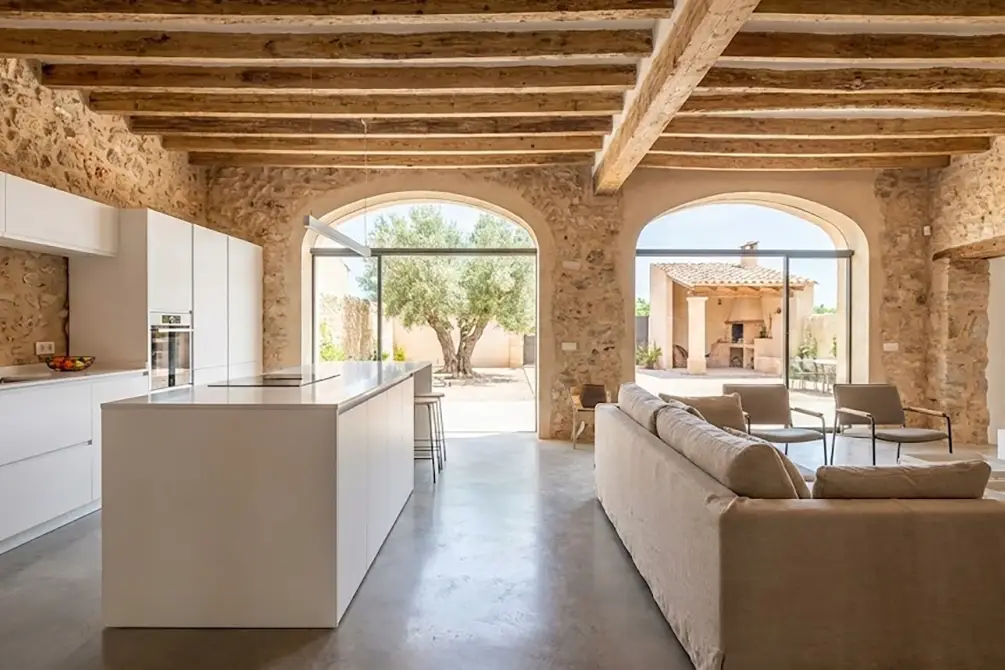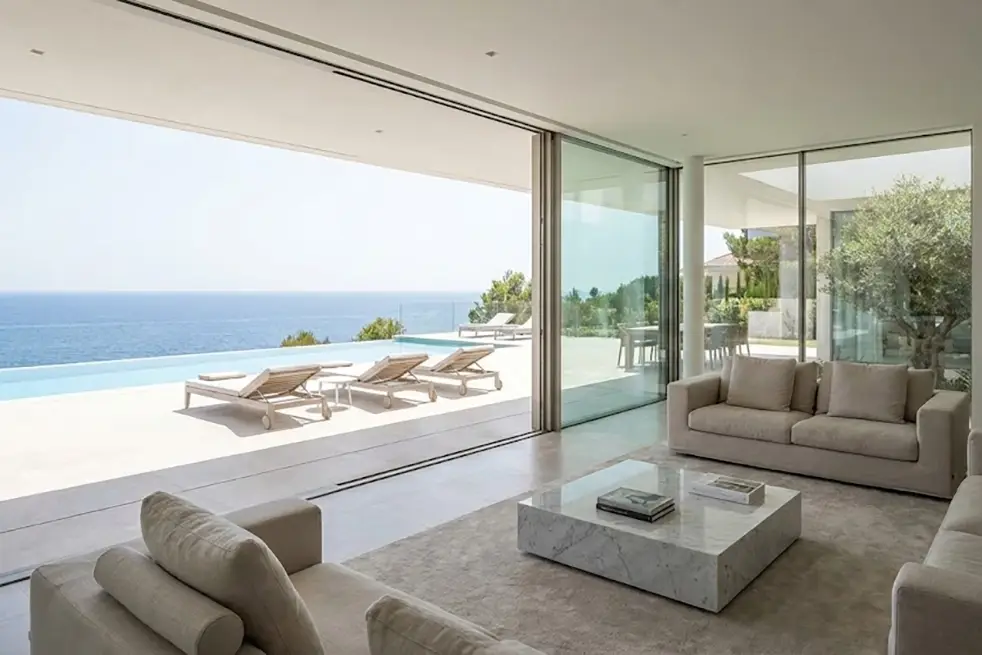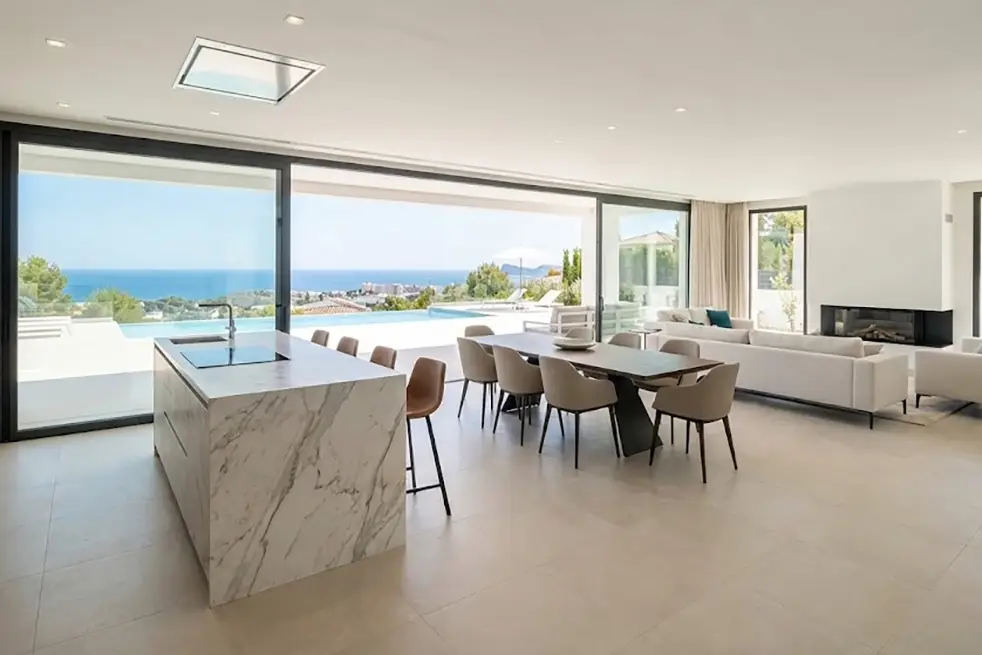It’s quite common in the Valencian Community to find homes that have been renovated without following the proper administrative procedures. Whether due to urgency, lack of information, or simply thinking “nothing will happen,” many building works are carried out without permits, and without being registered with the cadastre or Land Registry. This can lead to problems when selling, mortgaging, or inheriting the property.
In this article, we explain how to legalise a renovation already done in Dénia or Jávea, what steps to follow, and key recommendations to avoid legal complications or fines.
When is it necessary to legalise a renovation?
You must regularise any work that has altered the original property and is not officially documented. For example:
- Surface extensions (adding a floor, enclosing a porch, etc.)
- Changes to the internal layout
- Works affecting the façade or roof
- Structural changes (reinforced slabs, walls, etc.)
- Change of use (garage converted to living space, storage room into apartment…)
- Swimming pools built without permission
Even if years have passed and the local council hasn’t issued a penalty, this does not mean the renovation is legalised. If it’s not declared or registered, it remains irregular.
How to Legalise a Renovation Already Done: Step by Step
1. Assess the current state of the property
Start by comparing the current state of the property with its cadastral record, the original building licence (if available), and its registration details. An architect can help identify which parts are not regularised.
2. Drafting a Certificate of Antiquity
In many cases, if more than four years have passed since the renovation was completed (and it’s not on protected land), the offence is considered prescribed. You can then submit a technical certificate of antiquity to prove when the works were carried out.
This document must be signed by an architect or technical architect and accompanied by photos, plans, receipts, testimonies, etc.
3. Legalisation project
If the renovation affects structural elements, façades or includes added volume, the town hall may require a legalisation project. This must be prepared by a qualified technician and officially submitted through their professional association.
It includes a descriptive report, current state plans, compliance with planning regulations, and a proposal for regularisation.
4. Requesting legalisation licence from the Council
Using the certificate of antiquity or project (as applicable), you must apply for a legalisation licence from Dénia or Jávea’s town hall.
This process is similar to obtaining a regular planning permission: municipal fees apply, and there may be a fine for having done the works without a permit.
5. Update the cadastre and Land Registry
Once the legalisation licence is granted, you must update the cadastral information so it reflects the actual layout and surface.
After that, you can update the Land Registry, ensuring legal clarity and facilitating future transactions (sale, inheritance, mortgage…).
Key recommendations for legalising renovations in Jávea or Dénia
At La Quinta Fachada, we suggest the following if you’re in this situation:
- Don’t delay regularising. The longer you wait, the harder it becomes to prove the age of the works or comply with current planning rules.
- Contact a local technician experienced in Dénia and Jávea councils. Each town has its own criteria and requirements.
- Check whether your town hall has opened an urban planning file. This could influence the process.
- If the renovation is on rural or protected land, different requirements may apply. It’s essential to review local planning laws.
- Even if legalisation is possible, it may involve fines, fees, or taxes. Get informed before starting the process.
What happens if i don’t legalise a renovation already done?
- You may struggle to sell or mortgage the property, as unregistered works “don’t exist” legally.
- The council may issue fines or demand compliance if they detect irregularities.
- Inheritances become more complex when properties are not fully legal.
- If you want to apply for future planning permission, the council may require you to legalise previous works first.
Frequently asked questions about legalising renovations in Jávea and Dénia
Can I legalise a renovation without receipts or original plans?
Yes, provided you can prove its age through other means: dated photos, material purchase receipts, neighbour testimonies, technical certificates, etc.
How much does it cost to legalise a renovation already done?
It depends on the renovation type, technical fees, and municipal taxes. As a guide:
- Certificate of antiquity: from €400
- Full legalisation project: from €1,200
- Town hall fees and fines: vary by case
How long does the process take?
Between 1 and 3 months, depending on the speed of the council and the quality of the documents provided. Complex works may take longer.
What if the work cannot be legalised?
In that case, the council may demand demolition. They may also withhold new planning permissions until the issue is resolved. That’s why consulting an architect beforehand is crucial.
Regularise your renovation with professional help
Legalising a renovation already done in Dénia or Jávea is possible when the right steps are followed and professional advice is sought. While it may seem bureaucratic, it brings peace of mind, eases future processes, and avoids sanctions.
At La Quinta Fachada, we guide you throughout the process—from technical evaluation to council paperwork. If you have doubts about your home’s legal status, contact us. We’ll make sure everything is in order.




